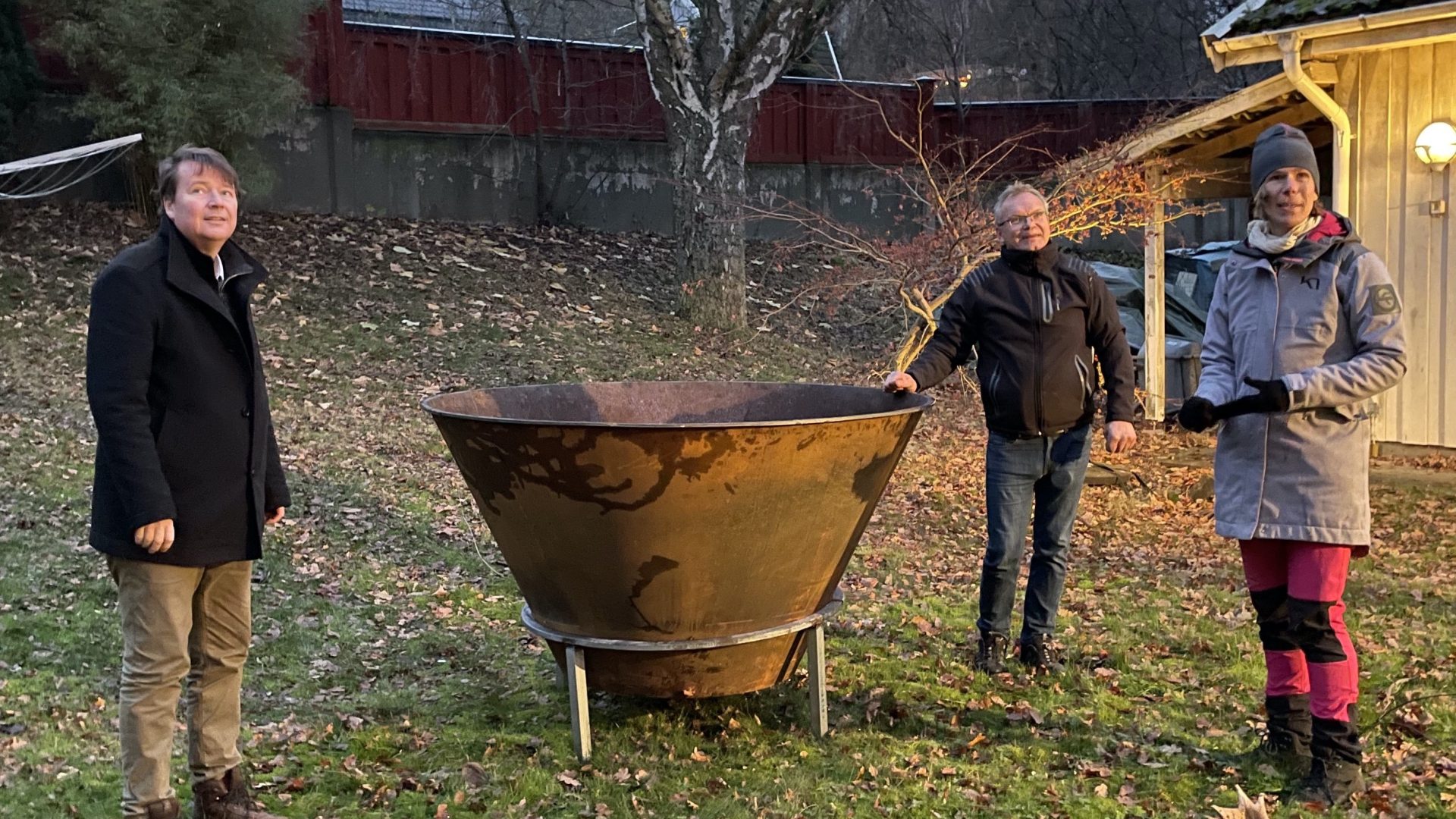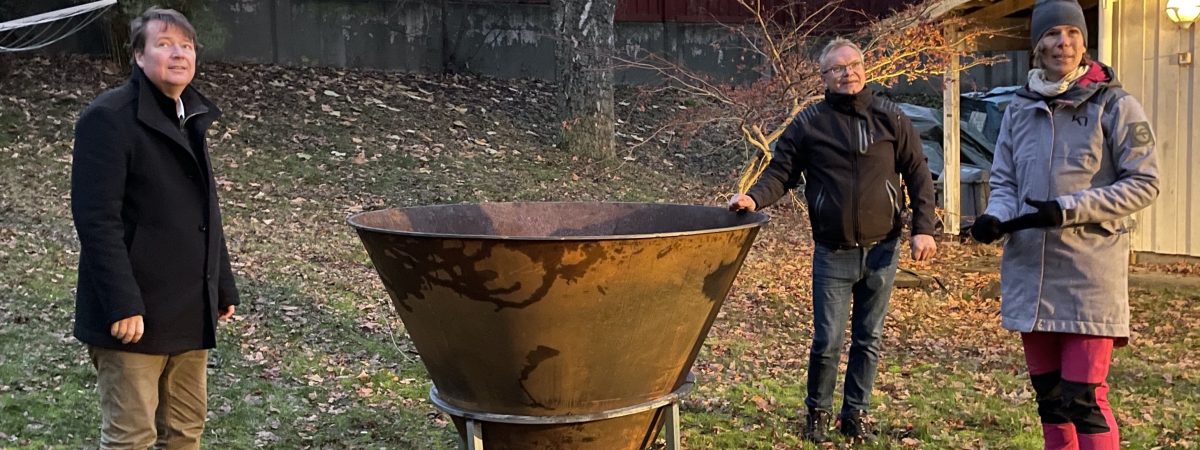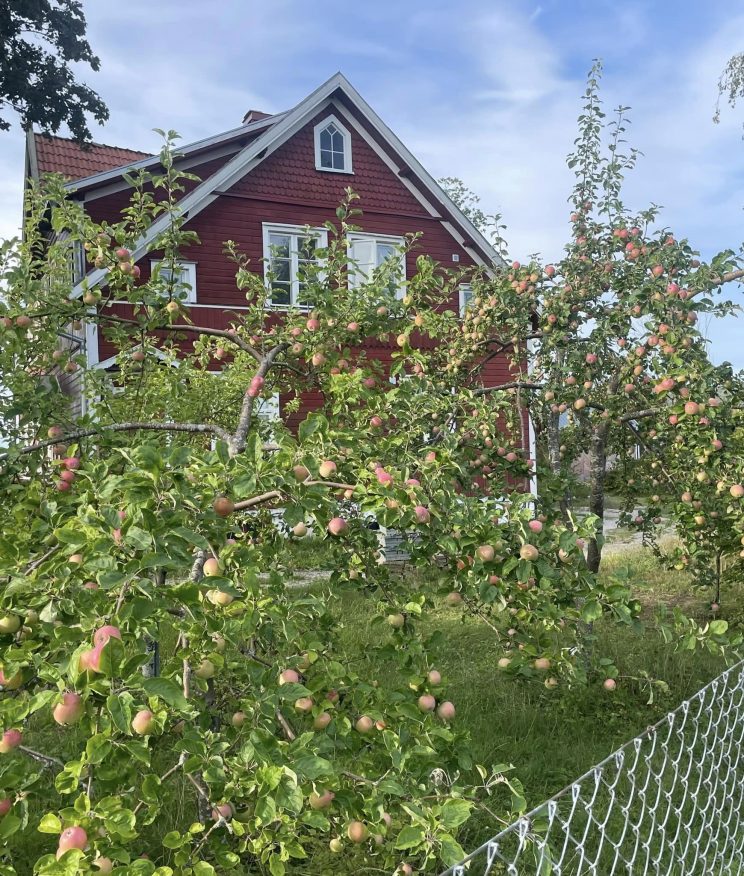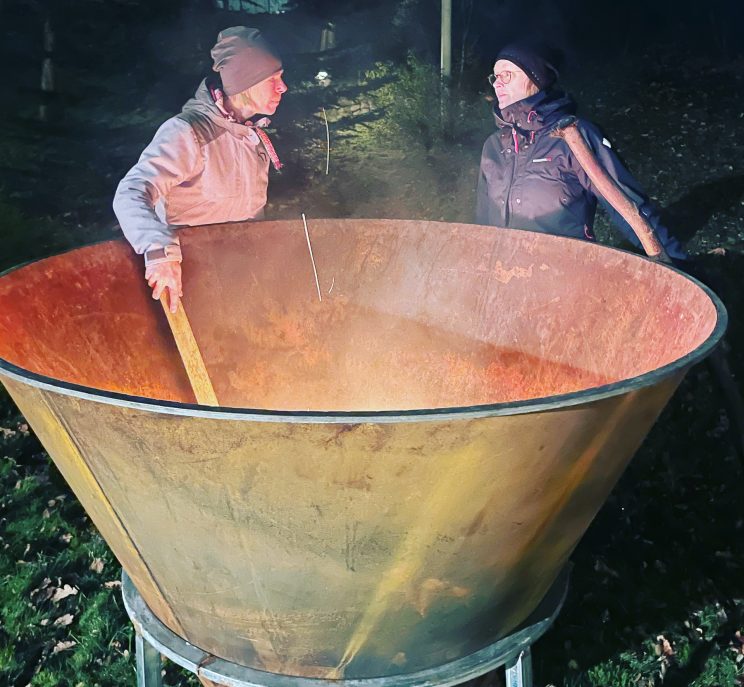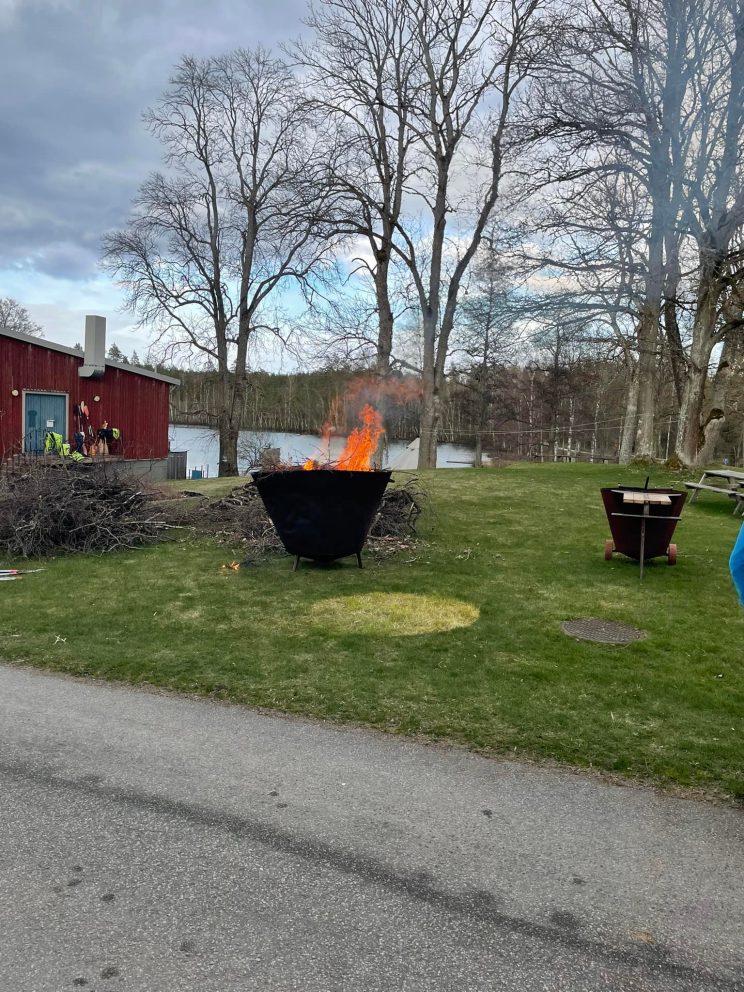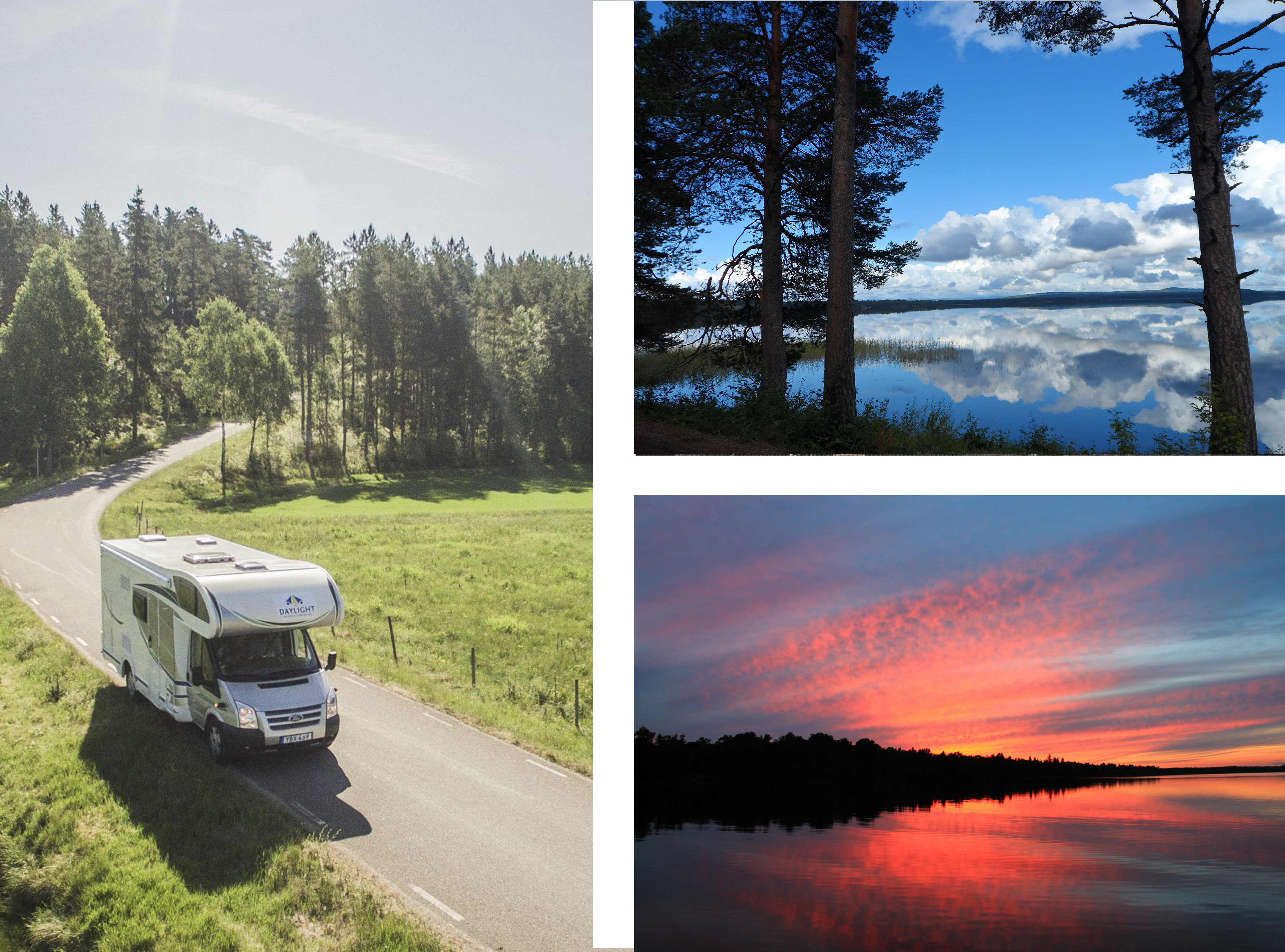Swedish beautiful residential areas
This text is about why you should buy or borrow a Kon-Tiki kiln from the people at Ödevata Countryside hotel.
You can also learn how to make your own Kon-tiki. Ödevata Countryside hotel has taken the initiative to start a network of biochar aficionados offering a range of learning events. They will arrange on-line sessions or, on your next vacation or trip around Sweden, you can book an in real life study tour
Local urban communities in Sweden and beyond
The text features a vision and a hope for local communities in Swedish urban areas and beyond.
In Sweden, many people live with nature around the corner. 40 percent of the household lives in a villa or detached house with a garden.
Today, busy Swedes would like to have a garden with well-cut lawns and beautiful flower beds. Older gardens often have apples trees. We have lost a bit of our circular thinking and many times the produce from the garden is not used.
However, our preferens in choosing how to reside , in residential villa areas creates an opportunity to design sustainable neighbourhoods.
Creating community
What should also be known about the Swedish way of living is that we are quite shy when it comes to make contact with our neighbourghs. We are of course collaborating in neighbourhoods watches and local associations aiming to create community. Nevertheless, people tend to be passive members of an association. Many of the kids in a area go to the same local school or play in the same fotboll team. So we know of each other but we do not socialise much in everyday life
The Go Nature Trip / Go Nature Market team have a dream and a desire to test collaboration around our gardens. We think it is a good idea to look back some generations when our grandparents needed the produce from their gardens or small plots to make their food basket healthier and more complete.
Imagine if, in our neighbourhoods, we used Intercropping techniques in beautiful kitchen gardens, a habitat for bees and bumblebees to thrive and buzz.
A strong neighborhood community can solve common problems and create security.
To contribute to biological diversity in your backyard
In our vision the plants and plants stand in soil that has been enriched with biochar. The people in the residential areas contribute to enhancing pollination and the residents have knowledge about pollination and biological diversity.
This is why we have started a campaign around buying our building your own Kon-Tiki. The biochar trend is making us more aware of the need for sustainable soil improvement.
We want to approach neighbourhood associations and local groups to go together and buy a Kon-tiki. For the lucky ones having welders living among them they could just go together to buy the material.
Wouldn’t it be nice if a joint-owned Kont-Tiki could lead to a larger neighbourhood community, beautiful kitchen gardens and neighbours who invite each other to taste each other´s home-grown food.
What if we actually feel better when we see, smell and understand where our food comes from? We know that sustainability is the way forward, but for sure most of us don’t have the knowledge nor energy to work in harmony with our local environment in a valuable way?
Swedish tradition and gardening interest
There is a gardening and cultivation tradition that goes way back in time. Many who do not have their own garden have small kitchen garden plots in the so called ” Koloniträdgårdar”.
Building companies want to contribute to the transition towards a more sustainable residential area and are building residential areas with gardens, orchards and eco-gardens. Today, the risk is that it will not lead to an anchored change. Especially the younger generation has less connection to and knowledge of nature and how to grow food. What is needed is perhaps guidance, inspiration and a helping hand.
Kon-Tiki and resource management
Many find satisfaction by using resources in a smart way. Twigs that we often handle as garden waste actually have value in themselves. Traditionally, many homeowners burn leftover twigs, branches and wood to reduce waste. The more environmentally friendly way is to use a Kont-Tiki, it doesn’t create dirty fumes? Good for the environment and does not disturb the neighbours with fumes.
You burne the twigs in a Kon-Tiki and at the same time you produce biochar. The end product can be as a soil improver for the neighbourhood’s kitchen gardens
If you are not a great cultivator yourself you can give away the biochar that you have produced to your neighbour who can enrich it in their Bokashi. In return you will get a few baskets full of good vegetables when the times comes to harvest the produce.
Kon-Tiki is the fastest, cleanest and easiest way to make biochar with minimal processing. Biocoal is completely stable and never breaks down and binds carbon dioxide for 1000 years and your harvests in your kitchen garden will increase every year.
We humans thrive best in harmony with our surroundings
Today’s society is very modular and we acquire knowledge and inspiration online. But imagine if we could put away our phones and computers and learn new things every day, just by going out into our kitchen gardens and explore the growth.
Get a Kon-Tiki and become part of a growing movement. New old methods are used to use resources in a sustainable way. Soil improvement, co-planting and Permaculture ensure that plants thrive.
Among our growers, there is often a close exchange of experiences and when harvest time comes, those who live nearby exchange crops with each other.
